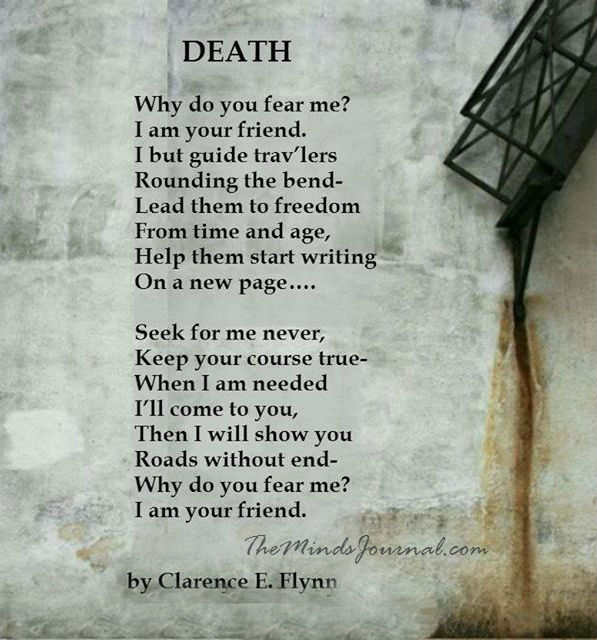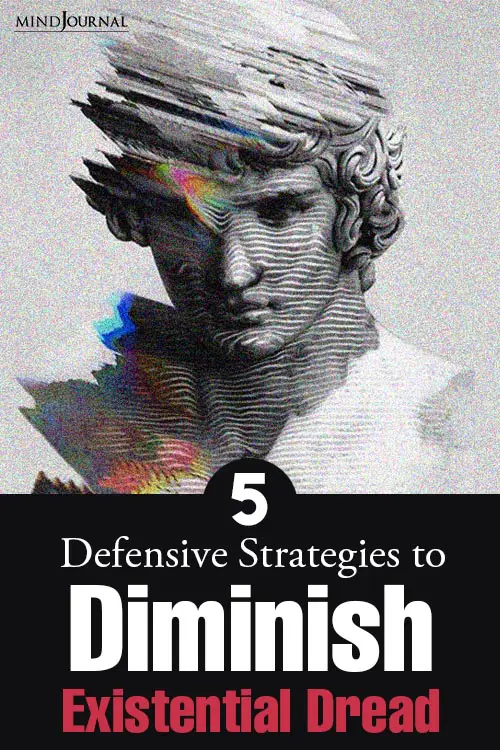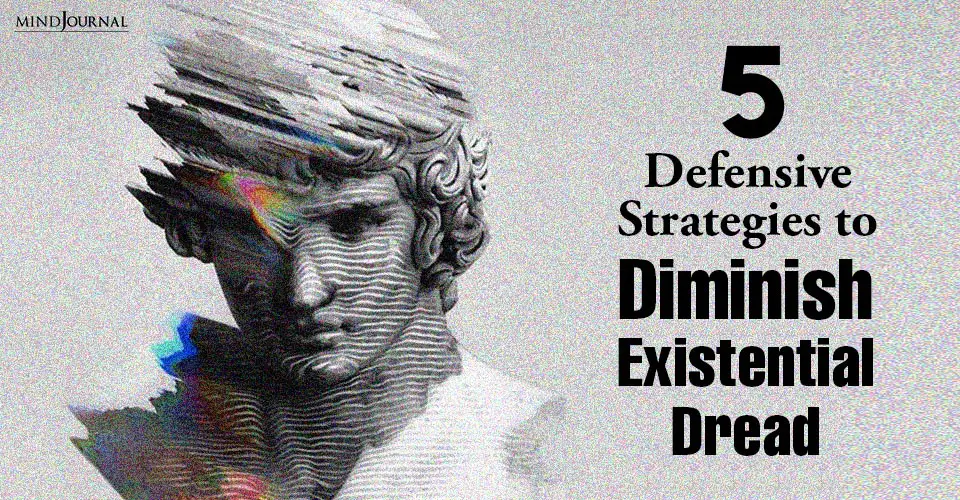Death is a part of life, and no matter how hard you try you can never run from it; you are bound to meet it at some point. Everyone at some point has thought about death and has feared it, which then leads to a sense of existential dread in them, and some even use several defensive strategies to diminish it.
Daily life is full of reminders of death (e.g., news about the pandemic, doctor’s visits, and concern about looking old). Death reminders have the power to trigger fears of powerlessness, loss of control, and meaninglessness. Death threatens all things in life. So, how do most people keep that knowledge hidden most of the time?
When people are consciously thinking about their mortality, they try to deny their vulnerability to death by perceiving it less likely (“not me, not now” responses). For example, people tend to increase intentions to engage in healthy behaviors (buying high-SPF sunscreen) immediately after death reminders. However, as thoughts of death gradually fade from consciousness, people activate psychological resources to transcend death via symbolic immortality (e.g., wealth, academic achievements, parenting).
The denial about mortality results in several cognitive strategies that people use to avoid existential fear of death (Routledge & Vess, 2019).
Here Are 5 Defensive Strategies to Diminish Existential Dread
1. Worldview validation.
Reminders of mortality increase people’s need for self-worth and worldview beliefs validation. Cultural worldviews (e.g., national identity and political affiliation) provide people with beliefs that make life feel predictable and purposeful. The feeling of being part of something important and enduring can make life more meaningful and thereby reduce anxiety.
2. Self-esteem enhancement.
Self-esteem is the key to psychological security that buffers anxiety. Self-esteem means feeling good about yourself and believing that you are a worthy individual. One way to acquire self-esteem is to surround oneself with like-minded people and react with hostility and prejudice toward members of the opposing culture. Being with like-minded people offers comfort against existential anxiety.
Related: 9 Truths Only Death Can Teach Us About Life
3. A desire for attachment security.
Death awareness drives people to seek close relationships to gain protection and comfort. Close relationships serve as a form of defense against the awareness of mortality. Thoughts of relationship problems and separation from relationships increase people’s death anxiety.
Felt security buffers a person from the terror of death awareness and reduces the need for other terror-management defenses, such as cultural worldview validation or self-esteem enhancement.
4. Death anxiety is at the core of most of our phobias.
For people suffering from various phobias and obsessions, death fears are channeled into the terror of something more manageable, like panic disorder. For example, individuals with panic disorder frequently consult with doctors regarding the fear of dying from a heart attack. This suggests the need to address death anxiety as part of treatment for anxiety disorders.

5. Addiction.
Some people resort to drugs to escape reality and subdue anxieties. Ironically, these individuals distract themselves from death with behaviors that lead to it. Drugs can serve to manage terror by reducing the capacity to experience anxiety and self-awareness. Those who lack sufficient meaning and self-worth are most likely to become addicted to drugs rather than using them in moderation.
Death anxiety is a uniquely human dilemma. Life must end for all living beings, but only humans know they are doomed to die. Intellectually we may acknowledge our mortality (saying, “Life is too short”), but deep down, we deny it.
Human beings are also capable of using their mental abilities to cope with the awareness of death. The challenge is to discover pathways to death acceptance. Conscious confrontation with death leads to the readjustment of one’s goal priorities to achieve feelings of authenticity. This means to choose goals that reflect one’s deeper interests, rather than external pressures.
References
Routledge Clay & Vess Mathew (2019), Handbook of Terror Management Theory. San Diego, CA, US: Elsevier Academic Press.
Written by Shahram Heshmat Originally Appeared In Psychology Today
When you are looking to diminish existential dread, you need to understand and accept the most important thing: you can never run or hide from Death. You need to accept it when the time comes, but till then living your life in constant, crippling fear is also not the solution. The only way to not feel scared of Death is to make peace with it.









Leave a Reply
You must be logged in to post a comment.